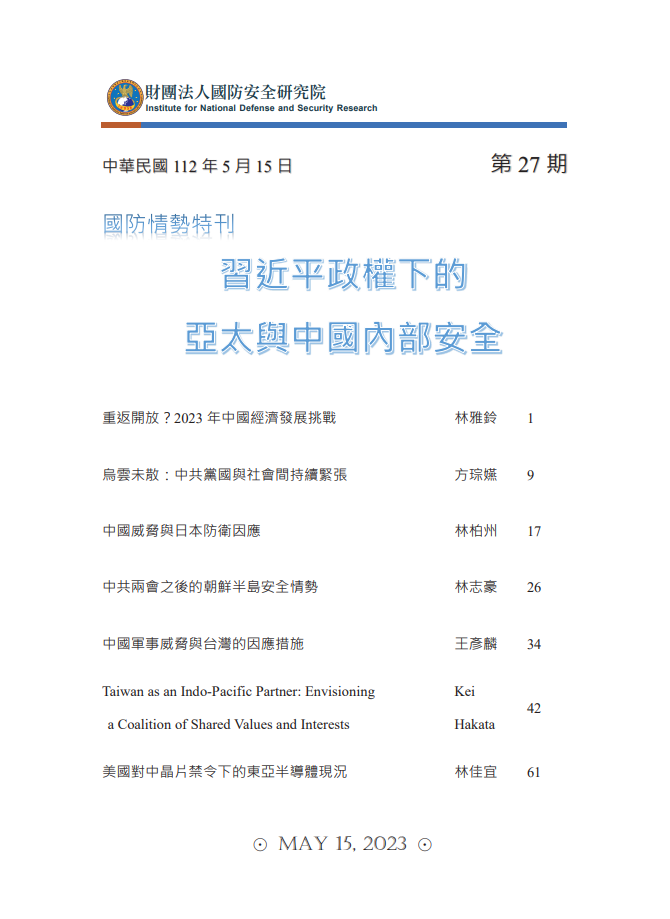The People’s Republic of China under President Xi Jinping continues to pursue hegemonic ambitions, yet its ultimate objective to annex Taiwan remains unachieved. The 20th Congress of the Chinese Communist Party confirmed Xi’s third term and reiterated the regime’s immutable ambition, signaling a turbulent time ahead. On the other hand, democratic states have developed grand strategies to counter China and embraced the Indo-Pacific, a symbolic term to safeguard the rules-based international order. Given the current geopolitical setting, this article investigates the meaning of a coalition, in peacetime and wartime, for the Republic of China, a sovereign yet isolated state. It first contextualizes the place of Taiwan in ongoing Indo-Pacific initiatives. It then depicts Taiwan’s increased international outreach and reviews the defense policies of Japan and the United States in light of Taiwan’s challenges. The article concludes by examining a conflict scenario, highlighting the importance of building a coalition based on shared values and interests.
Keywords
Taiwan, United States (US), Japan, Indo-Pacific, Central and Eastern Europe (CEE), coalition, wartime


